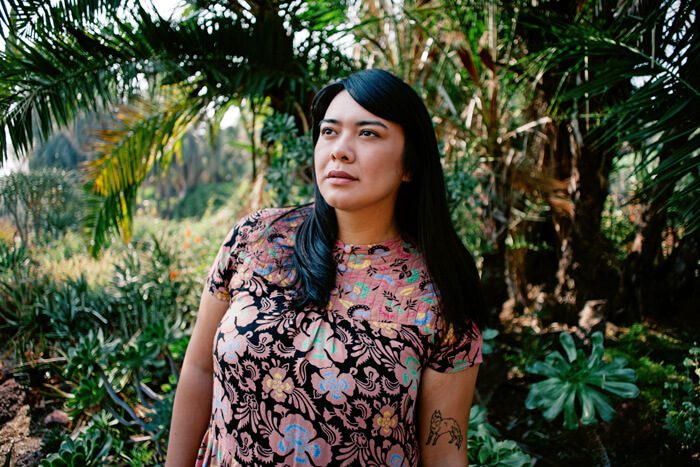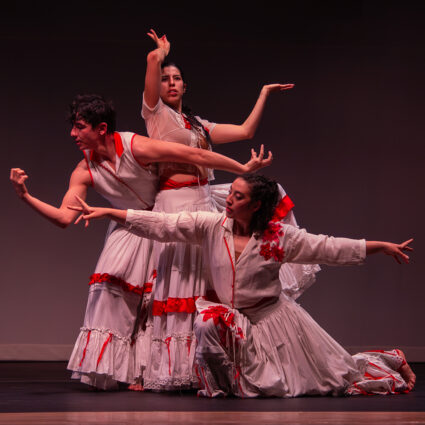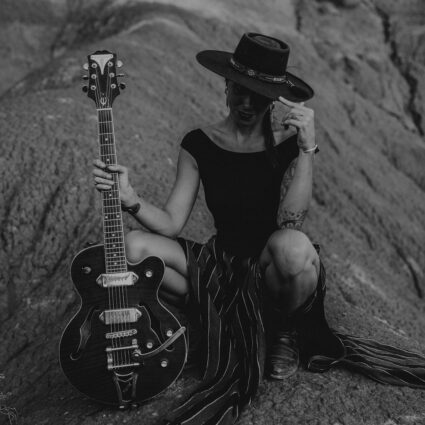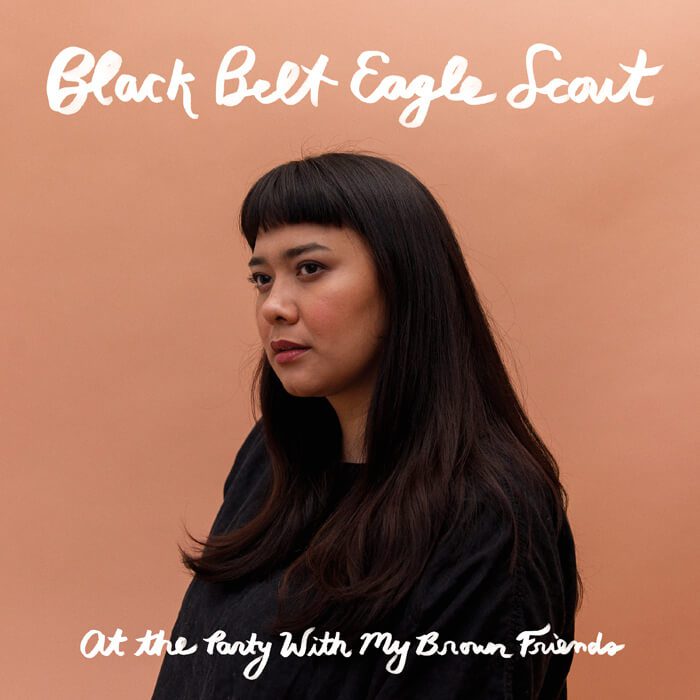
Black Belt Eagle Scout
November 20, 8 pm
Sister Bar, Albuquerque
In 2018, Black Belt Eagle Scout’s Katherine Paul leveraged pensive guitars, driving drums, and palpable anguish to craft her debut album, Mother of My Children. Named Best Rock Album of 2018 by Pitchfork, Paul’s debut resonated with audiences and made Black Belt Eagle Scout one of the year’s biggest alternative music success stories.
A year later, she’s back with At the Party with My Brown Friends, an affecting follow-up album focused on honoring the friends and family who sustained her through the tumultuous events her debut effort was inspired by. “My first album is so much about grief and relationships,” says Paul. “After physically making that record and processing everything, I felt better. But what helped me the most was my friends and support network, and a lot of the people I’ve chosen to surround myself with are people of color.”
Paul, who grew up in the Swinomish Indian Tribal Community on a reservation north of Seattle, describes her current home of Portland, Oregon, as being one of the “whitest big cities in America,” a place where some progressive residents support causes for racial equality in theory but not in practice. “People will say they support Black Lives Matter and will cross the street when they see black people coming towards them here. There’s definitely still racism in Portland.”
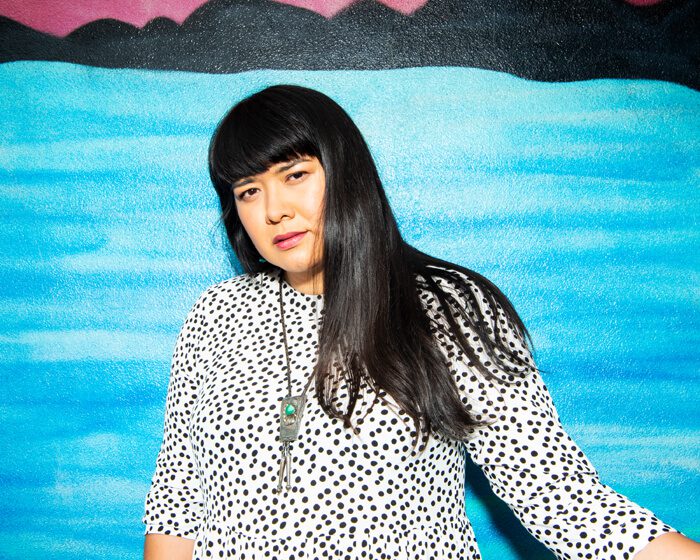
“Having your crew is essential,” says Paul who relocated to Portland for college and stayed after graduating. “When you walk outside and don’t see people who look like you, it makes you feel helpless. It’s a lonely feeling.” She goes on to say that the people of color who supported her during the creation and release of Mother of My Children were invaluable for their love and understanding. The “party” Paul’s new album refers to is a bittersweet one, the unavoidable and contrasting beauty and despair of life, born of a worldview that’s inextricably linked with her Native upbringing, friends, and family.
“There is always a sense of questioning the legitimacy of the world when you grow up on an Indian reservation,” reads a segment of Paul’s artist statement on the Black Belt Eagle Scout website. “I didn’t realize what it meant to live on a reservation until I left and moved to a big city. I started studying about my own culture and realized how horrific some reservations are. I feel privileged because I grew up with a small tribe in a beautiful setting. We control our resources, but many tribes don’t. I think a lot about how we got to be this way, and what the United States government is doing right now. It’s constant colonization.”
On her new album, Paul seems to be focused on creating songs that explore intimacy and connection. The vital network of support Paul’s recent work celebrates began with her parents, who devoted half of their small two-room home to her interest in music. Her parents were unwavering in their encouragement and gave their daughter the space and resources she needed to teach herself to play piano, drums, and guitar.
When asked what life is like now that she’s a critically acclaimed rock star, Paul says little has changed. “When I go home, people say they’re thankful for my music, and it means a lot. Other than that, life pretty much feels the same.”
